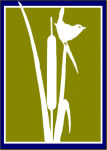About
Sudbury Valley Trustees (SVT) is a regional land trust based in Massachusetts. The organization conducts land protection, stewardship, advocacy, and educational activities in partnership with private landowners, businesses, municipal conservation commissions, and government agencies. SVT is governed by a volunteer board of directors and is supported by 13 staff members and more than 200 volunteers. [1]
Land Protection
SVT’s land protection program focuses on identifying and conserving ecologically diverse areas within its service region. Priority efforts include the protection of high-value conservation parcels, properties with community or historical value (“flagship properties”), and increasing the number of fee-simple acquisitions and land donations to the organization.
Stewardship
SVT manages its reservation properties to maintain ecological health and provide public access for recreation. Stewardship activities include habitat management, trail maintenance, and implementation of conservation practices aimed at supporting regional biodiversity.
Membership and Protected Lands
As of 2008, SVT had more than 3,600 members across 36 municipalities in the watershed. The organization managed more than 100 properties totaling over 3,300 acres (13 km²), including wetlands, sensitive habitats, trail networks, and other open spaces. SVT has also contributed to the permanent protection of an additional 6,000 acres (24 km²) now managed by public agencies, including portions of the Great Meadows National Wildlife Refuge.
At its annual meeting on September 28, 2008, SVT reported that it was nearing completion of an agreement to acquire the development rights to 452.6 acres (1.832 km²) of the Nobscot Scout Reservation from the Knox Trail Council of the Boy Scouts of America.
50th Anniversary
SVT observed its 50th anniversary in 2005 [2] with events held at Wolbach Farm in Sudbury. SVT reservations include trails for walking, birdwatching, cross-country skiing, and horseback riding. They are open to the public without charge.
History
SVT was founded in 1953 by seven residents seeking to prevent the loss of local wildlife habitat. [3] After returning to Wayland, Massachusetts, following service in the Marine Corps during World War II and the Korean War, Allen Morgan observed significant residential and commercial development on land that had previously consisted of forest and farmland. Concerned about the permanent loss of open space, he organized six colleagues (B. Allen Benjamin, Dr. George K. Lewis, Henry Parker, Willis B. Ryder, Richard Stackpole, and Roger P. Stokey) to establish Sudbury Valley Trustees for the purpose of protecting the area’s natural resources.
The founders distributed a form letter inviting residents to join the organization for a membership fee of $3. SVT grew to several hundred members within its first few years. Its early publications highlighted the environmental value of floodplain marshes and contributed to the adoption of the first floodplain zoning regulations in the Northeast. As a result of SVT’s advocacy, most communities in the Sudbury Valley created floodplain zones protecting approximately 6,000 acres (24 km²) without incurring land acquisition costs.
SVT operated entirely through volunteer efforts until 1981, when Morgan became its first executive director. During his tenure, SVT expanded to nearly 2,400 members, a staff of four full-time and four part-time employees, and a portfolio of approximately 60 protected properties totaling about 1,200 acres (4.9 km²) by the time of his death in 1990.
This page is based on this
Wikipedia article Text is available under the
CC BY-SA 4.0 license; additional terms may apply.
Images, videos and audio are available under their respective licenses.

